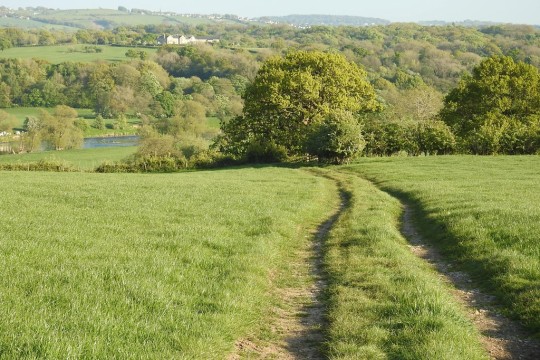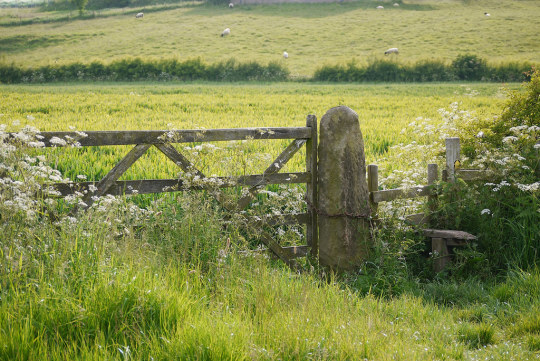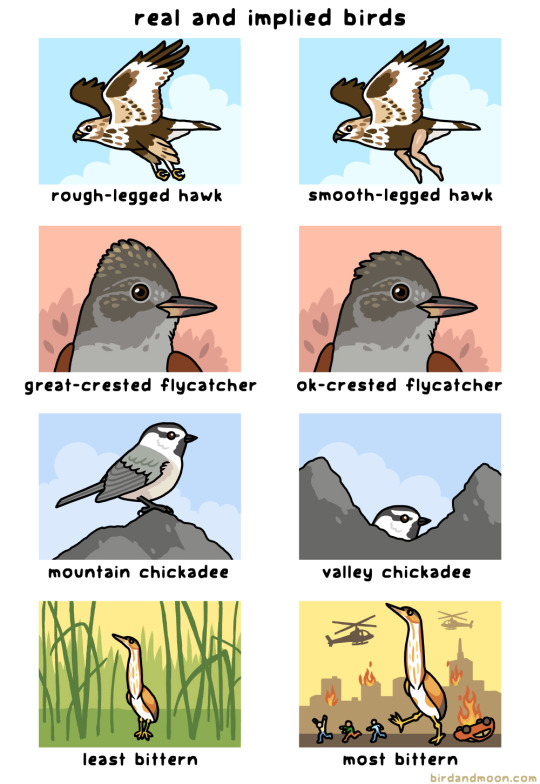Note
why do you think it's so common for writers to insert themselves into their stories?
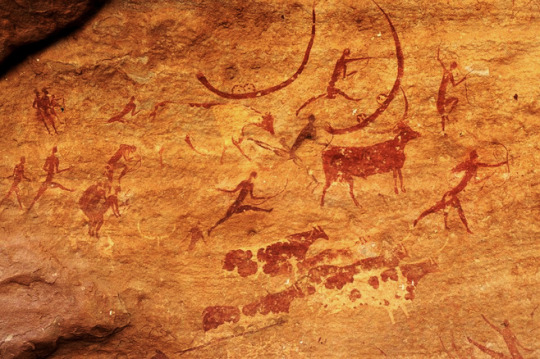
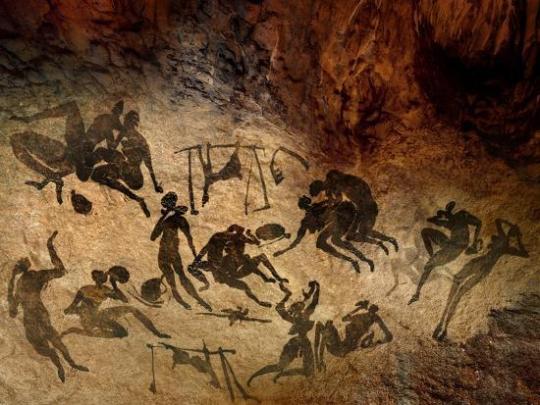
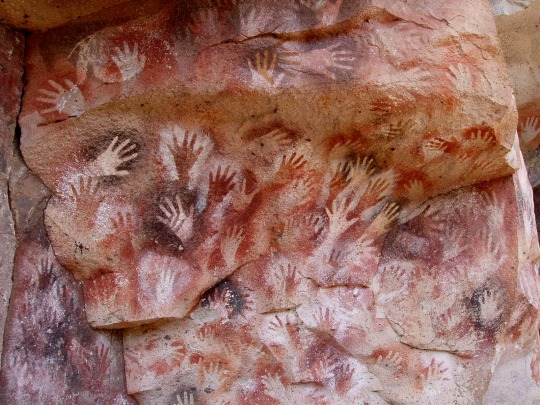
I don't know.
51K notes
·
View notes
Text
I had the same reaction haha!
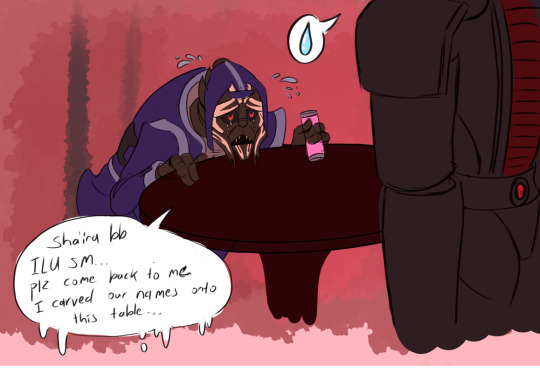

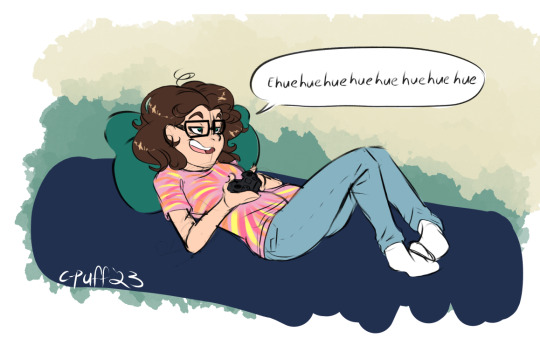
In the business, we call this foreshadowing.
2K notes
·
View notes
Text
How Do I Make My Fictional Gypsies Not Racist?
(Or, "You can't, sorry, but…")
You want to include some Gypsies in your fantasy setting. Or, you need someone for your main characters to meet, who is an outsider in the eyes of the locals, but who already lives here. Or you need a culture in conflict with your settled people, or who have just arrived out of nowhere. Or, you just like the idea of campfires in the forest and voices raised in song. And you’re about to step straight into a muckpile of cliches and, accidentally, write something racist.
(In this, I am mostly using Gypsy as an endonym of Romany people, who are a subset of the Romani people, alongside Roma, Sinti, Gitano, Romanisael, Kale, etc, but also in the theory of "Gypsying" as proposed by Lex and Percy H, where Romani people are treated with a particular mix of orientalism, criminalisation, racialisation, and othering, that creates "The Gypsy" out of both nomadic peoples as a whole and people with Romani heritage and racialised physical features, languages, and cultural markers)
Enough of my friends play TTRPGs or write fantasy stories that this question comes up a lot - They mention Dungeons and Dragons’ Curse Of Strahd, World Of Darkness’s Gypsies, World Of Darkness’s Ravnos, World of Darkness’s Silent Striders… And they roll their eyes and say “These are all terrible! But how can I do it, you know, without it being racist?”
And their eyes are big and sad and ever so hopeful that I will tell them the secret of how to take the Roma of the real world and place them in a fictional one, whilst both appealing to gorjer stereotypes of Gypsies and not adding to the weight of stereotyping that already crushes us. So, disappointingly, there is no secret.
Gypsies, like every other real-world culture, exist as we do today because of interactions with cultures and geography around us: The living waggon, probably the archetypal thing which gorjer writers want to include in their portrayals of nomads, is a relatively modern invention - Most likely French, and adopted from French Showmen by Romanies, who brought it to Britain. So already, that’s a tradition that only spans a small amount of the time that Gypsies have existed, and only a small number of the full breadth of Romani ways of living. But the reasons that the waggon is what it is are based on the real world - The wheels are tall and iron-rimmed, because although you expect to travel on cobbled, tarmac, or packed-earth roads and for comparatively short distances, it wasn’t rare to have to ford a river in Britain in the late nineteenth century, on country roads. They were drawn by a single horse, and the shape of that horse was determined by a mixture of local breeds - Welsh cobs, fell ponies, various draft breeds - as well as by the aesthetic tastes of the breeders. The stove inside is on the left, so that as you move down a British road, the chimney sticks up into the part where there will be the least overhanging branches, to reduce the chance of hitting it.
So taking a fictional setting that looks like (for example) thirteenth century China (with dragons), and placing a nineteenth century Romanichal family in it will inevitably result in some racist assumptions being made, as the answer to “Why does this culture do this?” becomes “They just do it because I want them to” rather than having a consistent internal logic.
Some stereotypes will always follow nomads - They appear in different forms in different cultures, but they always arise from the settled people's same fears: That the nomads don't share their values, and are fundamentally strangers. Common ones are that we have a secret language to fool outsiders with, that we steal children and disguise them as our own, that our sexual morals are shocking (This one has flipped in the last half century - From the Gypsy Lore Society's talk of the lascivious Romni seductress who will lie with a strange man for a night after a 'gypsy wedding', to today's frenzied talk of 'grabbing' and sexually-conservative early marriages to ensure virginity), that we are supernatural in some way, and that we are more like animals than humans. These are tropes where if you want to address them, you will have to address them as libels - there is no way to casually write a baby-stealing, magical succubus nomad without it backfiring onto real life Roma. (The kind of person who has the skills to write these tropes well, is not the kind of person who is reading this guide.)
It’s too easy to say a list of prescriptive “Do nots”, which might stop you from making the most common pitfalls, but which can end up with your nomads being slightly flat as you dance around the topics that you’re trying to avoid, rather than being a rich culture that feels real in your world.
So, here are some questions to ask, to create your nomadic people, so that they will have a distinctive culture of their own that may (or may not) look anything like real-world Romani people: These aren't the only questions, but they're good starting points to think about before you make anything concrete, and they will hopefully inspire you to ask MORE questions.
First - Why are they nomadic? Nobody moves just to feel the wind in their hair and see a new horizon every morning, no matter what the inspirational poster says. Are they transhumant herders who pay a small rent to graze their flock on the local lord’s land? Are they following migratory herds across common land, being moved on by the cycle of the seasons and the movement of their animals? Are they seasonal workers who follow man-made cycles of labour: Harvests, fairs, religious festivals? Are they refugees fleeing a recent conflict, who will pass through this area and never return? Are they on a regular pilgrimage? Do they travel within the same area predictably, or is their movement governed by something that is hard to predict? How do they see their own movements - Do they think of themselves as being pushed along by some external force, or as choosing to travel? Will they work for and with outsiders, either as employees or as partners, or do they aim to be fully self-sufficient? What other jobs do they do - Their whole society won’t all be involved in one industry, what do their children, elderly, disabled people do with their time, and is it “work”?
If they are totally isolationist - How do they produce the things which need a complex supply chain or large facilities to make? How do they view artefacts from outsiders which come into their possession - Things which have been made with technology that they can’t produce for themselves? (This doesn’t need to be anything about quality of goods, only about complexity - A violin can be made by one artisan working with hand tools, wood, gut and shellac, but an accordion needs presses to make reeds, metal lathes to make screws, complex organic chemistry to make celluloid lacquer, vulcanised rubber, and a thousand other components)
How do they feel about outsiders? How do they buy and sell to outsiders? If it’s seen as taboo, do they do it anyway? Do they speak the same language as the nearby settled people (With what kind of fluency, or bilingualism, or dialect)? Do they intermarry, and how is that viewed when it happens? What stories does this culture tell about why they are a separate people to the nearby settled people? Are those stories true? Do they have a notional “homeland” and do they intend to go there? If so, is it a real place?
What gorjers think of as classic "Gipsy music" is a product of our real-world situation. Guitar from Spain, accordions from the Soviet Union (Which needed modern machining and factories to produce and make accessible to people who weren't rich- and which were in turn encouraged by Soviet authorities preferring the standardised and modern accordion to the folk traditions of the indigenous peoples within the bloc), brass from Western classical traditions, via Balkan folk music, influences from klezmer and jazz and bhangra and polka and our own music traditions (And we influence them too). What are your people's musical influences? Do they make their own instruments or buy them from settled people? How many musical traditions do they have, and what are they all for (Weddings, funerals, storytelling, campfire songs, entertainment...)? Do they have professional musicians, and if so, how do those musicians earn money? Are instrument makers professionals, or do they use improvised and easy-to-make instruments like willow whistles, spoons, washtubs, etc? (Of course the answer can be "A bit of both")
If you're thinking about jobs - How do they work? Are they employed by settled people (How do they feel about them?) Are they self employed but providing services/goods to the settled people? Are they mostly avoidant of settled people other than to buy things that they can't produce themselves? Are they totally isolationist? Is their work mostly subsistence, or do they create a surplus to sell to outsiders? How do they interact with other workers nearby? Who works, and how- Are there 'family businesses', apprentices, children with part time work? Is it considered 'a job' or just part of their way of life? How do they educate their children, and is that considered 'work'? How old are children when they are considered adult, and what markers confer adulthood? What is considered a rite of passage?
When they travel, how do they do it? Do they share ownership of beasts of burden, or each individually have "their horse"? Do families stick together or try to spread out? How does a child begin to live apart from their family, or start their own family? Are their dwellings something that they take with them, or do they find places to stay or build temporary shelter with disposable material? Who shares a dwelling and why? What do they do for privacy, and what do they think privacy is for?
If you're thinking about food - Do they hunt? Herd? Forage? Buy or trade from settled people? Do they travel between places where they've sown crops or managed wildstock in previous years, so that when they arrive there is food already seeded in the landscape? How do they feel about buying food from settled people, and is that common? If it's frowned upon - How much do people do it anyway? How do they preserve food for winter? How much food do they carry with them, compared to how much they plan to buy or forage at their destinations? How is food shared- Communal stores, personal ownership?
Why are they a "separate people" to the settled people? What is their creation myth? Why do they believe that they are nomadic and the other people are settled, and is it correct? Do they look different? Are there legal restrictions on them settling? Are there legal restrictions on them intermixing? Are there cultural reasons why they are a separate people? Where did those reasons come from? How long have they been travelling? How long do they think they've been travelling? Where did they come from? Do they travel mostly within one area and return to the same sites predictably, or are they going to move on again soon and never come back?
And then within that - What about the members of their society who are "unusual" in some way: How does their society treat disabled people? (are they considered disabled, do they have that distinction and how is it applied?) How does their society treat LGBT+ people? What happens to someone who doesn't get married and has no children? What happens to someone who 'leaves'? What happens to young widows and widowers? What happens if someone just 'can't fit in'? What happens to someone who is adopted or married in? What happens to people who are mixed race, and in a fantasy setting to people who are mixed species? What is taboo to them and what will they find shocking if they leave? What is society's attitude to 'difference' of various kinds?
Basically, if you build your nomads from the ground-up, rather than starting from the idea of "I want Gypsies/Buryats/Berbers/Minceiri but with the numbers filed off and not offensive" you can end up with a rich, unique nomadic culture who make sense in your world and don't end up making a rod for the back of real-world cultures.
4K notes
·
View notes
Text
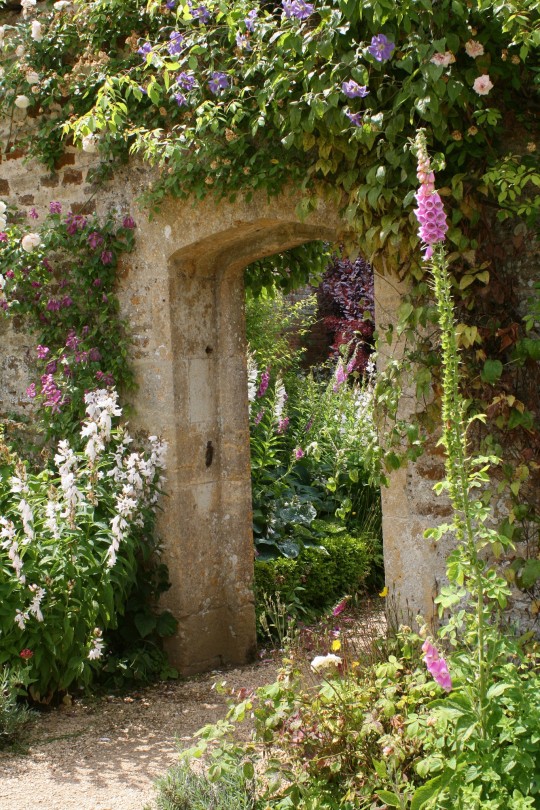
Rousham House, Oxfordshire, England by Lindsey Renton
474 notes
·
View notes
Text
Yo that Zevran one though.... 🔥
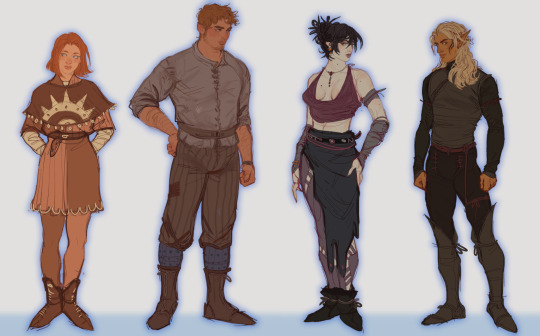
camp clothes origins style
5K notes
·
View notes
Text
I must not mock Gen Alpha. Mocking Gen Alpha is the mind killer. Mocking Gen Alpha is the little-death that brings total generational solidarity obliteration. I will engage with Gen Alpha lovingly. I will permit them to be cringe. And when they grow up I will turn my eye to their accomplishments. Where mocking has gone there will be nothing. Only generational solidarity remains
44K notes
·
View notes
Text
This is so cute! I wish it were me 50 years from now too
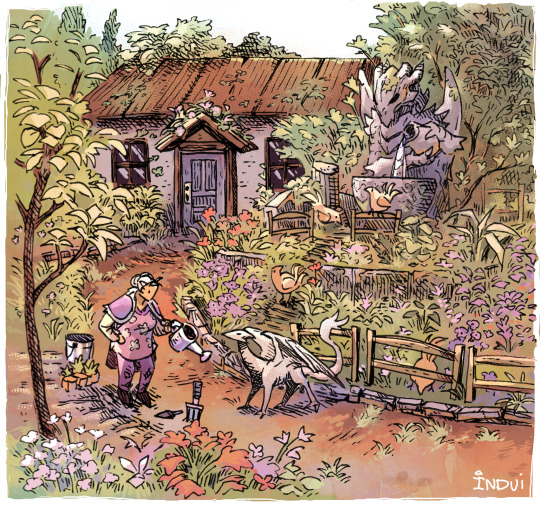
Self portrait, 50 years from now (idealized)
2K notes
·
View notes
Text
This is so incredible! My favorites are the hanged man, the star, and the chariot
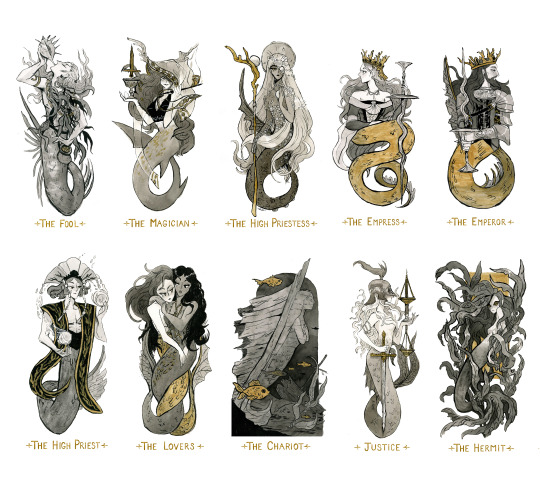
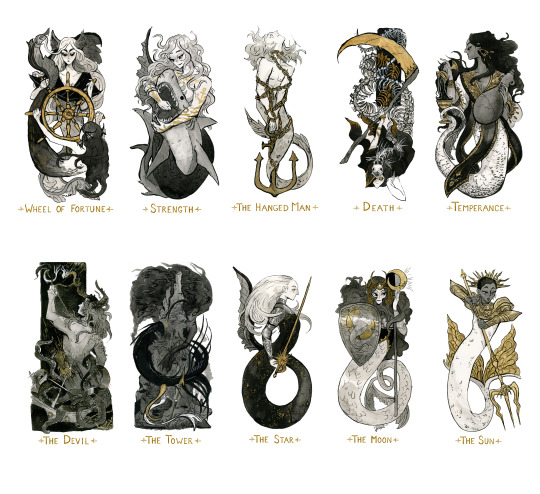
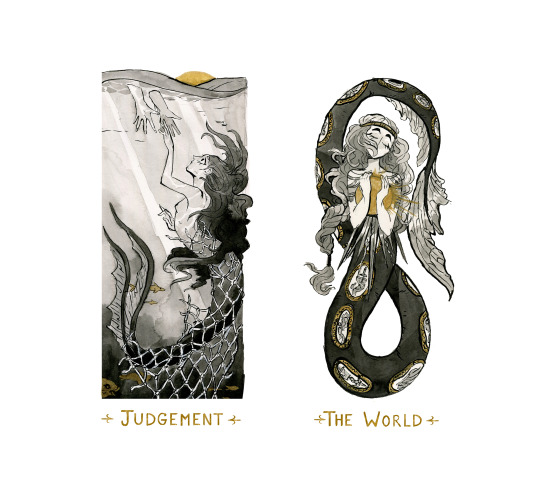
Resharing my old mermaid tarot series in honor of MerMay! Still one of my favorite projects.
2K notes
·
View notes
Text
This is so ridiculously cute
My favorite mermaid art is the one of a family photo with a mermaid mother and old sailor father and their sons are both reverse merfolk (human legs with fish heads).
105K notes
·
View notes
Photo
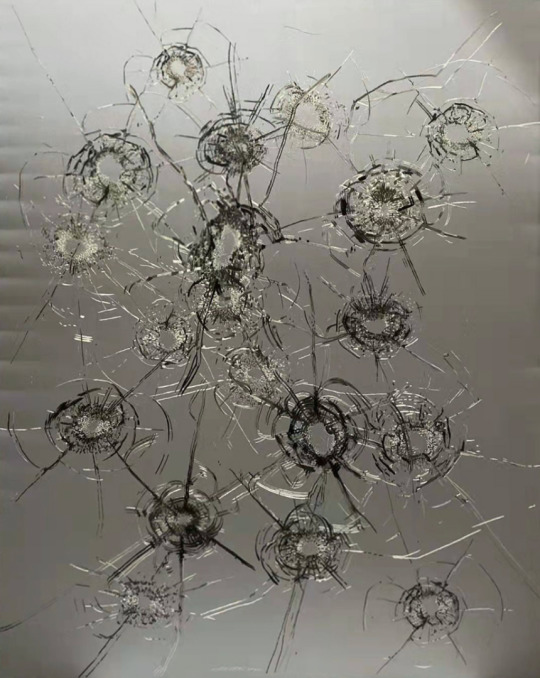
Zhao Zhao (Chinese, b. 1982)
Constellations, 2021-2022
Embroidery on silk
48K notes
·
View notes

